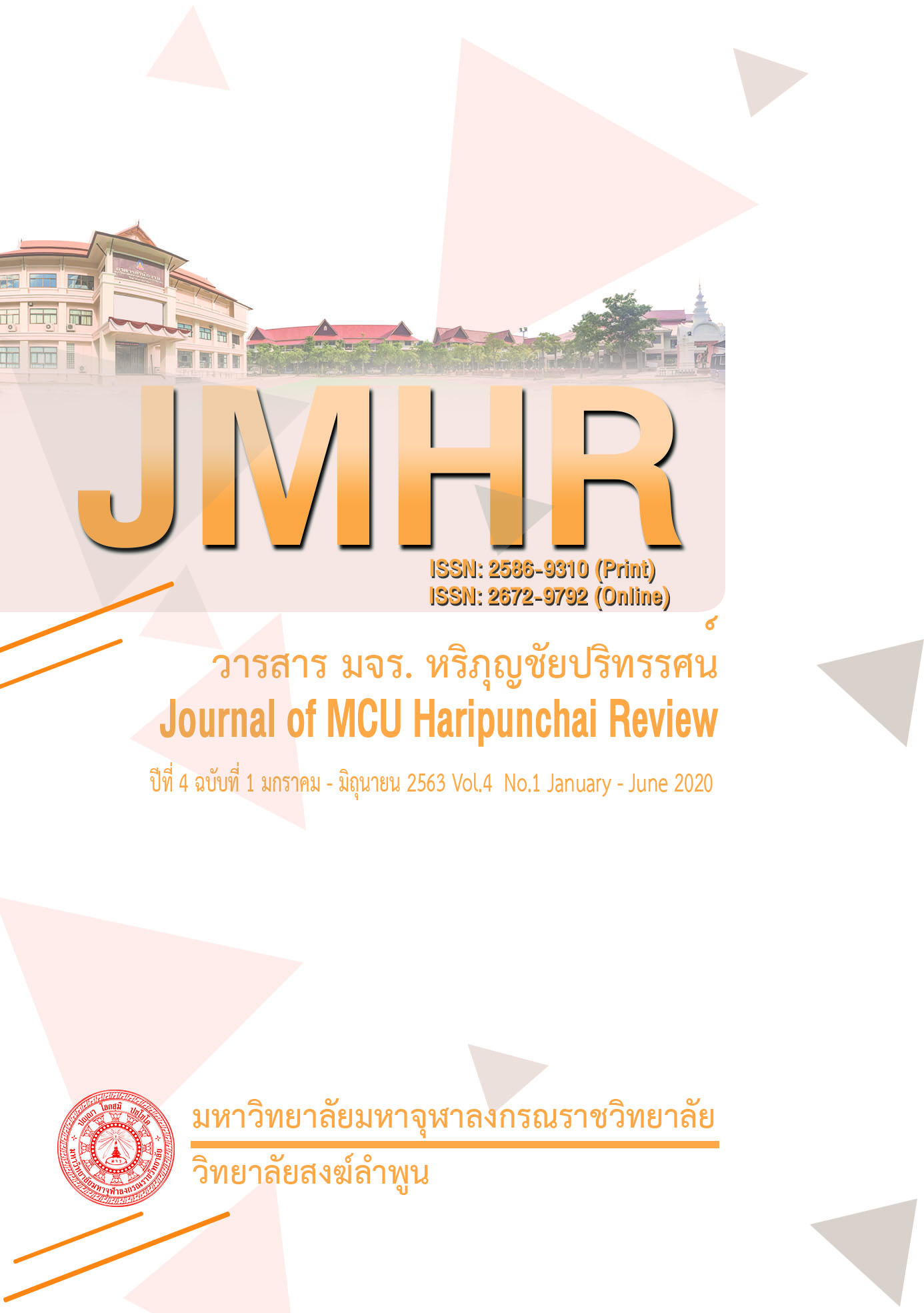The explanation of designs and guidelines to develop temple as a recreational area with community collaboration, a case study: Wat Nak Prok, Phasi Charoen, Bangkok
Main Article Content
Abstract
This research is qualitative research using “Grounded Theory Methodology” to select the study area that is consistent to the objectives and research questions. Data were collected through in-depth interviews, inquiries, document analysis and related research. Data analysis has been done through interpretation and the importance of data received. There are 20 key informants including monks, male followers, female followers, staffs, Buddhists, and general public who involved in development of Wat Nak Prok.
The results are as follows
1.The definition of “the designs and guidelines to develop Wat Nak prok as a recreational area” from those involved with Wat Nak Prok are 1. To do good for the Buddhism. 2. To participate in temple activities. 3. To take part in problem solving and developing Wat Nak Prok.
2.The designs and guidelines to develop temple as a recreational area of integrity in Buddhism according to the principles of temple creation and management includes suitable abode, suitable resort, suitable speech, suitable person, suitable food, suitable climate, and suitable posture. These are considered as the principles that created the process to develop temple as a recreational area, to be as a spiritual anchor to sustain Buddhist’s mind, and to be an area for Buddhists to learn and develop physical, mental, emotional and intellectual.
3.Solution for the problem to development of Wat Nak Prok as a recreational area is to have a structural plan for management and administration to induce beneficial to temple development.
Article Details
References
การศึกษาแห่งชาติ,
พระมหาไกรวรรณ์ ชินทตฺติโย (ปุณขันธ์),ดร. และคณะ. (2560). รายงานการวิจัยและพัฒนาหลักสูตรฝึกอบรม พระวิทยากรกระบวนธรรม.กรุงเทพมหานคร: สถาบันพัฒนาพระวิทยากร.
พระมหาสุระพงษ์ สุรวํโส(สีหมอก).(2555). ภาวะผู้นำของพระสงฆ์ในการบริหารการพัฒนาชุมชน: กรณีศึกษาพระครูโพธิวีรคุณ วัดโพธิการาม ตำบลโพนสูง อำเภอปทุมรัตน์ จังหวัดร้อยเอ็ด. วิทยานิพนธ์ศิลปศาสตรมหาบัณฑิต. กรุงเทพมหานคร:สถาบันบัณฑิตพัฒนบริหารศาสตร์.
พระครูปลัดสำรวย สิริสาโร (ช่างกระโทก). (2556). บทบาทพระสงฆ์ในการส่งเสริมคุณธรรม จริยธรรมในอำเภอวังน้อย จังหวัดพระนครศรีอยุธยา, วิทยาลัยนิพนธ์ปริญญาพุทธศาสตรมหาบัณฑิต. พระนครศรีอยุธยา: มหาวิทยาลัยมหาจุฬาลงกรณราชวิทยาลัย.


